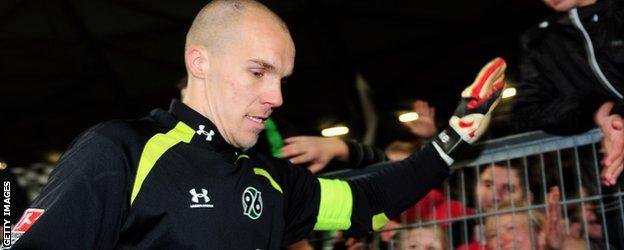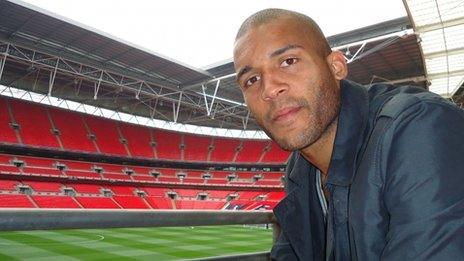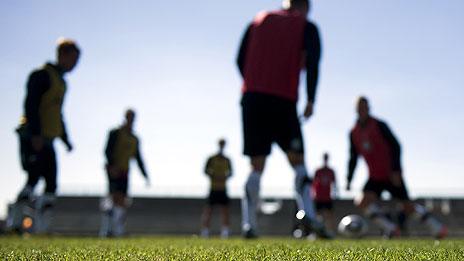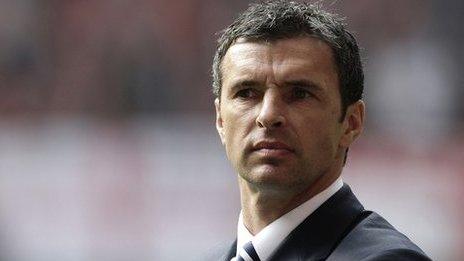Robert Enke's widow: Depression in sport is 'no longer taboo'
- Published
Robert Enke's widow sees progress after suicide
The widow of former Germany goalkeeper Robert Enke, who took his life in 2009, says "perceptions have changed" since his death.
"Depression is no longer a taboo topic," Teresa Enke told BBC Sport's Alex South.
"A lot has happened in the way that people deal with the sickness. People are more open with it."
Enke had been battling depression for six years when he stepped in front of a train, external near Hannover.
Robert Enke in focus |
|---|
Born: 24/8/77, Jena, East Germany |
Professional debut: 11/11/95 |
Clubs: Carl Zeiss Jena, Borussia Monchengladbach, Benfica, Barcelona, Fenerbahce, Tenerife, Hannover 96 |
Germany debut: 27/3/07 versus Denmark Caps: 8 |
Awards: Bundesliga goalkeeper of the season 2008-09 |
He had struggled to overcome the death of his daughter Lara, who died at the age of two in 2006 of a rare heart condition.
Teresa Enke says he also had difficulty coping with the intense scrutiny of professional football.
"Pressure can become a sickness," she said.
"Being part of the national team also had a big effect, always being in the public eye both negatively and positively. It really got to him."

Robert Enke's widow Teresa said fans should "see the human being behind the sports person"
But Teresa, who works with the German FA and her husband's former club Hannover 96 to promote awareness of depression, believes considerable progress has been made.
"Most people are now brave enough to talk about it - to say, 'I'm sick and I need help'," she said.
"We try to stop things before they happen. The coaches try and deal with the situation.
"There is no longer as much of a stigma attached with depression, like there was five years ago."
Footballers who have battled depression |
|---|
Former Burnley defender Clarke Carlisle |
Ex-Liverpool and Nottingham Forest striker Stan Collymore |
Former Germany midfielder Sebastian Deisler |
Ex-Leicester City striker Darren Eadie |
Former Portsmouth goalkeeper John Sullivan |
However, Teresa says there is no need for sportsmen and women suffering from depression to be so open with their struggles.
"We don't want sports people to go public and say we have depression," she said. "There's no need to communicate it publicly.
"The help should be given internally. The coaches and the teams should help and support the player and let them know they can come back from it."
Enke's widow says she hopes that her husband's death will continue to serve as a "wake-up call" for sport.
"Sport will always be important but you should always see the human being behind the sports person," she said.
"You shouldn't just reduce them to a performance. It's nice if he performs well but you should respect that people make mistakes.
"I wish there was more understanding of [being] a professional sports person."
- Published9 July 2013

- Published30 November 2011

- Published29 November 2011

- Published7 June 2019
